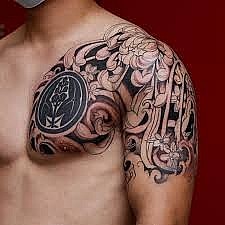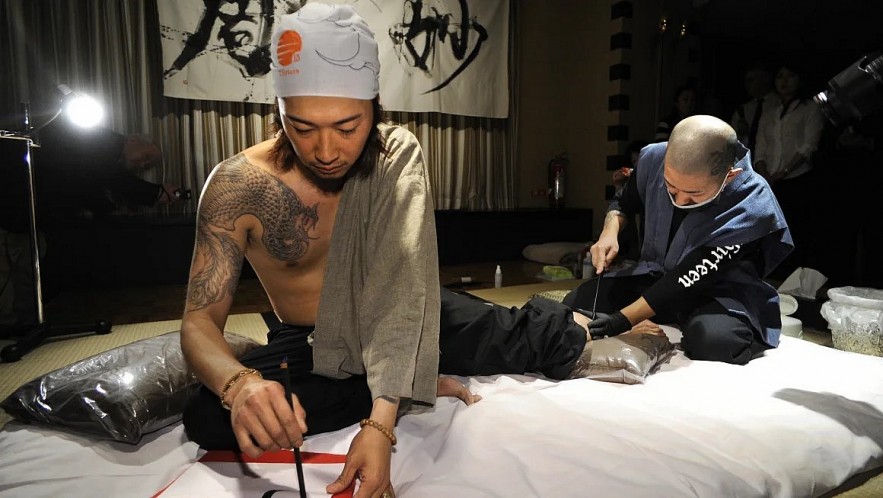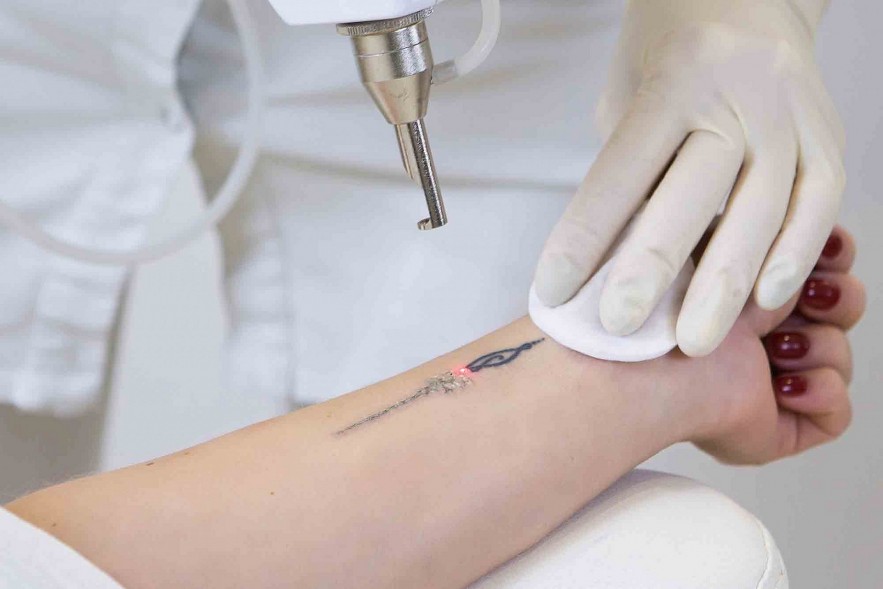Why are Tattoos Frowned and Stigmatized in Japan?
But, more specifically, what influence does it have? And what is the underlying reason behind Japanese people's prejudice against tattoos? Let's find out in the following piece.
 |
| Tattooing often known as drawing on body |
Tattoo Concept
Tattooing often known as drawing on your body, has been practiced in Vietnam for a long time. Tattoo has recently gained popularity among young people. The need for one-of-a-kind, eye-catching images on the skin, as well as the desire to assist young people in establishing their class, is the driving force behind the emergence of this fad. People used to think you were a playboy if you had a tattoo on your body, no matter how big or tiny. A tattoo nowadays demonstrates your personality and taste.
Animals, flowers, leaves, branches, stars, people, angels, and other shapes and types of tattoos are available.
Japan's Tattoo History
Japanese tattoos are considered to have originated ten thousand years ago. Tattoos from this era appear to have had both decorative and spiritual purpose. Following that, between 300 BC and 600 BC, the tattoo became connected with criminal conduct, and tattoos were employed as a form of punishment. From this point forward, the tattoo gained a negative meaning.
Tattoos in Japan have steadily gained popularity in Japan's red light districts since the 18th century, with pictures inspired by historical themes and legends derived from the old book Japanese Chronicles dating back to the 18th century yearly. Each tattoo has a personal and symbolic meaning.
Tattooing was also popular in Japan during the Jomon and Yayoi periods. The primary objective of tattooing during this time period was to demonstrate social rank. Tattoos were later used to punish convicts as a result of cultural shifts. Tattoos are stigmatized in Japan because they stray from the mainstream of Japanese culture.
 |
Why are tattoos frowned in Japan?
Tattoos are frowned upon in Japan because they are associated with criminals and debt collectors. Fear develops as a result of not daring to make contact. Japanese tattoo art began and developed extremely early; previously, tattoos simply had the significance of jewelry and spiritual beliefs.
However, since the 6th century, criminals in Japan have been marked with inscriptions or images and have been dubbed Yakuza by the public. More here: Can I get a tattoo to work in Japan?
Yakuza members engage in drug trafficking, prostitution, gambling, loan sharking, or political blackmail, causing fear and discrimination against those with tattoos, despite the fact that countries outside of Japan love the art of tattooing.
People who joined bad organizations in society typically tattooed their bodies to identify their participation in a certain gang, which originated in the ancient culture of the Edo period, and is still influential in society,
That is why tattoos are frowned in Japan.
 |
| You will almost never see tattoos (save on foreigners) |
Is it tough for foreigners to work in Japan because of tattoos?
When visiting Japan, you will almost never see tattoos (save on foreigners). They even put up notices at hot spring facilities preventing individuals from obtaining tattoos. This condition can also be found in settings where body parts must be exposed, such as swimming pools and gyms.
 |
| "Can I work in Japan with my tattoo?" |
Many answers to the question "Can I work in Japan with my tattoo?" can be found with just one click. Most of them give you two options: remove the tattoo or relocate to a more acceptable country. Tattoos are still considered extremely dangerous in the eyes of the Japanese.
Those who send specific skills, on the other hand, will not be able to impress employers. You will be subject to the following if you have a tattoo on your body:
You won't have many opportunity to determine the ideal order while exporting labor.
Finding a part-time work is proving to be a difficult task.
People and colleagues will not sympathize with you.
In Japan, it is difficult to rent a property or participate in community activities.
 |
| When visiting Japan, you will almost never see tattoos |
Is a tattoo a detriment when applying for a job in a company?
Even so, many Japanese employers refuse to hire people with tattoos. If a firm employee gets a tattoo, it appears that he is an anti-social person or is linked with other anti-social persons. They believe that this creates a strong bad image of the entire firm. Companies frequently prefer persons without tattoos for these reasons, making it difficult for those with tattoos to gain positions at large organizations.
Is there any industry in which you can acquire a job despite having a tattoo?
 |
| Hayato Suzuki, a Japanese calligrapher, draws Chinese characters while tattoo artist Horimyo (right) inks his leg in Tokyo in 2009. |
In Japan, having a tattoo indicates you can't work in an office. Specifically, the role must interact with numerous professions such as finance, banking, insurance businesses, and many well-known corporations and associations. It will be detected regardless of how well you conceal it.
In addition, people with tattoos can still find work in Japan. For example, design firms, hairdressers, nail salons, clothing firms, some IT firms, and so on. These firms care more about the worth of their employees, their talents, and contributions than whether or not they have tattoos.
The severity level is usually listed in the following order: The company requires shirts and vests. The company allows free apparel. The company accepts tattoos.
The essay particularly mentions the reason tattoos are shunned in Japan. So you're undoubtedly aware of how tattoos effect your life and work chances. As a result, think carefully before getting a tattoo.
How can you get rid of tattoos and how much does it cost?
Some of you reading this may be thinking, "I want to erase my tattoo." Tattoo removal methods include laser and surgical treatment. However, because it is a non-covered treatment, the cost is roughly 2,000 yen for 1 cm2 of skin surface, which can add up quickly.
 |
| Tattoo removal methods include laser and surgical treatment |
In conclusion, it is difficult to find work with a tattoo in a Japanese corporation. If you want to work at a bank, a large corporation, or the government, you should think about getting rid of your tattoo. However, if you are proud of your tattoo and do not intend to have it removed, we recommend that you locate a firm and work environment that suits you. Your freedom is whatever you choose. I will help you find your own style of life and working.
 Top 10 Most Beautiful Korean Women, Ranked by Japanese Top 10 Most Beautiful Korean Women, Ranked by Japanese |
 Top 5 Superfoods for Japanese People to Live Longer Top 5 Superfoods for Japanese People to Live Longer |
 Top 10 Largest Companies In Japan By Market Cap (2024 Update) Top 10 Largest Companies In Japan By Market Cap (2024 Update) |























